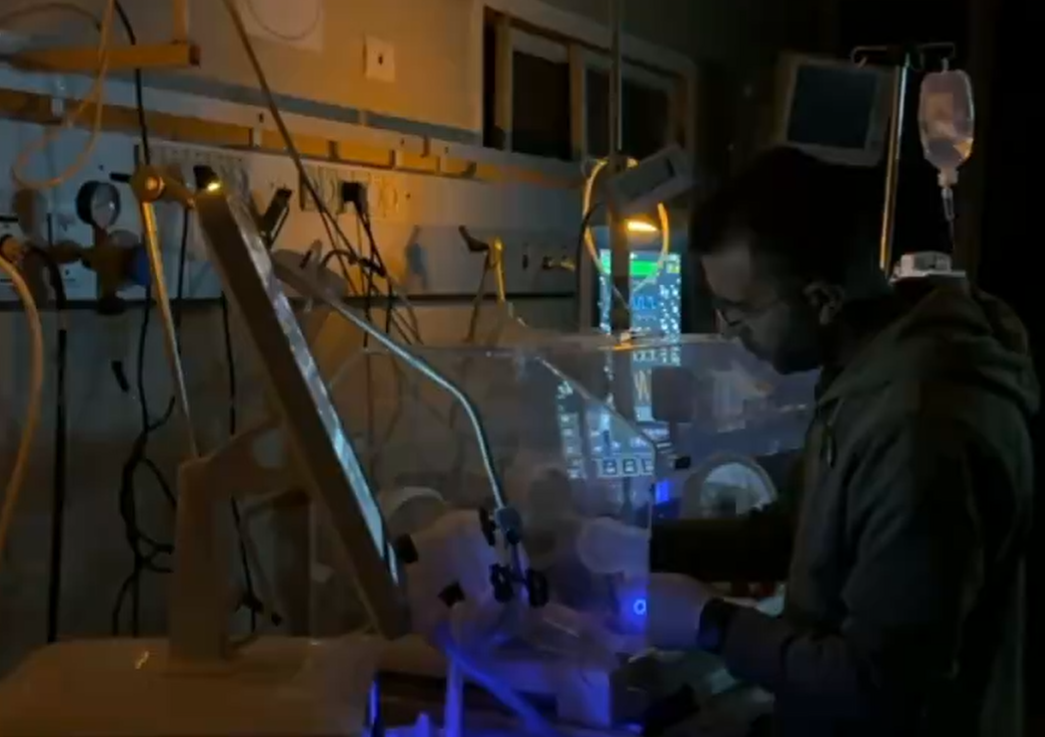Children who survived the Israeli bombardment of Gaza may not survive a famine, the head of the World Health Organisation has said.
The stark warning from Tedros Adhanom Ghebreyesus comes amid a plea for more aid to be moved into the embattled Palestinian territory.
Israel has been accused of genocide against the Palestinian people in Gaza in the aftermath of Hamas attacks against Israel on October 7th.
In recent days Israel has come in for more criticism over a lack of humanitarian aid being received in Gaza.
Children who survived bombardment but may not survive a famine.
Allow more aid for #Gaza.
Ceasefire. pic.twitter.com/O2EfbDit8p— Tedros Adhanom Ghebreyesus (@DrTedros) March 6, 2024
The United Nations has said staff at Kamal Adwan Hospital in Gaza's far north have been unable to save at least 10 children from dying from severe acute malnutrition and dehydration in recent days.
"When a child is supposed to eat three meals and day and ends up eating one meal, that’s not enough," Dr Imad Dardonah warned from the hospital yesterday.
"We can't even deal properly with 50 to 60% of the cases we receive because we have nothing to given them.
"The most we can do for them is give them saline solution or sugar solution."
New ICJ application
The development comes as South Africa has made a new application to the International Court of Justice over the ongoing conflict.
It is urgently asking the court in The Hague to consider new facts and changes to the situation, particularly concerning reports of widespread starvation.
It has called on the court to urgently ensure the safety and security of 2.3 million Palestinians in Gaza - including one million children.
It has also urged the court to do so without holding a hearing in light of the 'extreme urgency of the situation'.
 A doctor works at an incubator during a power cut at Kamal Adwan Hospital in Gaza, 6-3-24. Image: WHO
A doctor works at an incubator during a power cut at Kamal Adwan Hospital in Gaza, 6-3-24. Image: WHOIt comes amid reports of revisions to a draft UN Security Council ceasefire resolution by the United States, calling for "an immediate ceasefire of roughly six weeks in Gaza together with the release of all hostages".
The US has vetoed a number of UN resolutions calling for a ceasefire in Gaza.
A push for a ceasefire before Ramadan starts on March 10th continued in Cairo but seems to have stalled, with Israel and Hamas blaming each other for the impasse.
Without a ceasefire, it is likely to become increasingly hard to get aid to parts of Gaza and aid organisations are warning of imminent famine.
Norwegian Refugee Council Secretary-General Jan Egeland yesterday described Palestinians as "the most trapped population under the worst bombardment in modern history".
"We're not even getting in the emergency aid that this bombarded population is in need of," he said.
Mr Egeland said border crossings could be opened immediately but the fact that they had not was making delivering aid difficult.
"The US and others are forced to resort to the most primitive, the least precise, the most chaotic of aid anywhere, which is airdrops. It's not going to solve the situation."
Aid drops
US Vice-President Kamala Harris said people were "starving" and Israel needed to increase the flow of life-saving assistance.
She described the current conditions inside Gaza as "inhumane" and a "humanitarian catastrophe".
France has joined the US, Jordanian, Egyptians and Emiratis in carrying out aid drops, but they are only used in a last resort and it is difficult to ensure the aid gets to the right place.
Sea routes are also being explored with Cyprus being a possible staging post.
It is thought that could introduce further problems with the port in Gaza being out of action and questions of how the ships would have secure and safe passage into Gaza.









